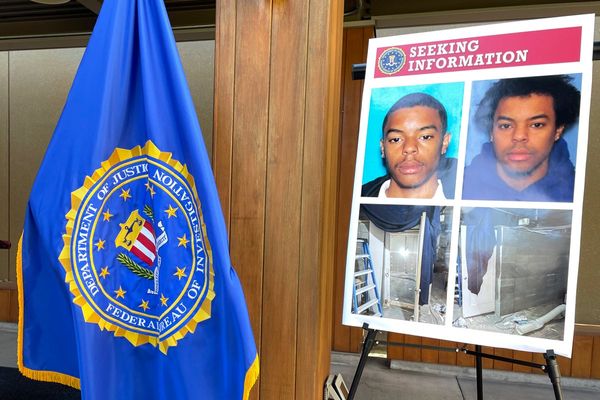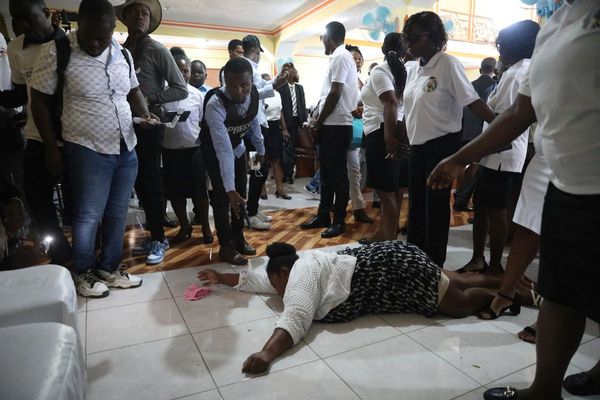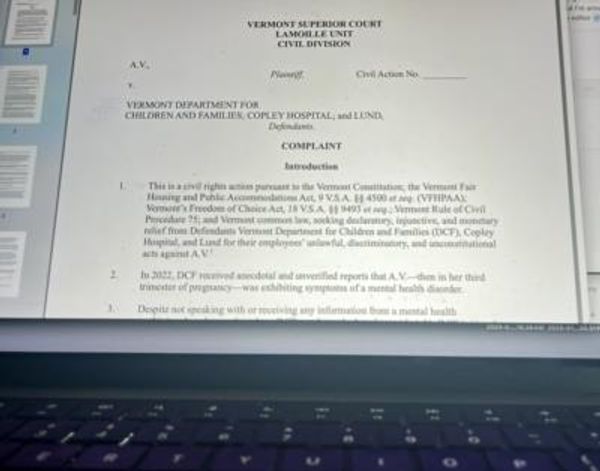
More than 4,300 people have been arrested after demonstrators took to the streets in 21 Russian cities to condemn Vladimir Putin’s invasion of Ukraine, while protesters in Kazakhstan have followed suit, turning out in large numbers to chant “No to war” and “Putin is a dickhead”.
The independent monitoring group OVD-Info – which has already logged more than 7,500 anti-war protest arrests – said it had documented the detentions of at least 4,366 people in 53 cities including Vladivostok and Irkutsk. Opposition activists also posted videos showing protests in other cities.
“The screws are being fully tightened – essentially we are witnessing military censorship,” Maria Kuznetsova, OVD-Info’s spokesperson, told Reuters. “We are seeing rather big protests today, even in Siberian cities where we only rarely saw such numbers of arrests.”
Russia’s interior ministry said earlier that police had detained about 3,500 people, including 1,700 in Moscow, 750 in St Petersburg and 1,061 in other cities.
The jailed Russian opposition leader Alexei Navalny had called for protest across Russia and the rest of the world after the Russian invasion, which began on 24 February. But Russia’s interior ministry warned on Saturday that any attempt to hold unauthorised protests would be prevented and the organisers held to account.
Independent reporting from Russia has become increasingly difficult since Friday, when the government cracked down on news outlets by passing a law that made the intentional spreading of “fake” or “false” news about the war in Ukraine a criminal offence punishable by jail terms of up to 15 years.
A video posted on social media showed a protester on a square in the far eastern city of Khabarovsk shouting “No to war – how are you not ashamed?” before being arrested by two police officers. Police also used loudspeakers to tell a small group of protesters in the city: “Respected citizens, you are taking part in an unsanctioned public event. We demand you disperse.” Reuters was not able to independently verify the post.

Videos posted on social media showed about 2,000 people had attended an anti-war protest in Kazakhstan’s biggest city, Almaty.
Activists put blue and yellow balloons in the hand of a Lenin statue towering over the small square where the rally took place, and the crowd shouted slogans such as “No to war” and “Putin is a dickhead” while waving Ukrainian flags.
Although Putin has sought to depict the invasion as “a special military operation” to defend Russian-speaking communities against persecution in Ukraine, his claims have been overwhelmingly rejected both abroad and by some in Russia.
“Because of Putin, Russia now means war for many people,” Navalny said on Friday. “That is not right: it was Putin and not Russia that attacked Ukraine.”
On Sunday the Turkish president, Recep Tayyip Erdoğan, urged Putin to declare a ceasefire in Ukraine, open humanitarian corridors and sign a peace agreement.
In a statement released after a hourlong phone call between the two leaders, the Turkish presidency said Erdoğan had told Putin that Turkey was ready to contribute to a peaceful resolution of the conflict.
“President Erdoğan renewed his call of: ‘Let’s pave the way for peace together’,” his office said. “Erdoğan emphasised the importance of taking urgent steps to achieve a ceasefire, open humanitarian corridors and sign a peace agreement.”
Despite the international condemnation and sanctions that have met the military attack, Putin’s approval ratings have jumped in Russia since the invasion, according to Moscow-based pollsters.
Putin’s rating rose six percentage points to 70% in the week to 27 February, according to the state pollster VTsIOM. The pollster FOM, which conducts research for the Kremlin, said Putin’s rating had risen seven percentage points to 71% in the same week.
Reuters contributed to this report.







